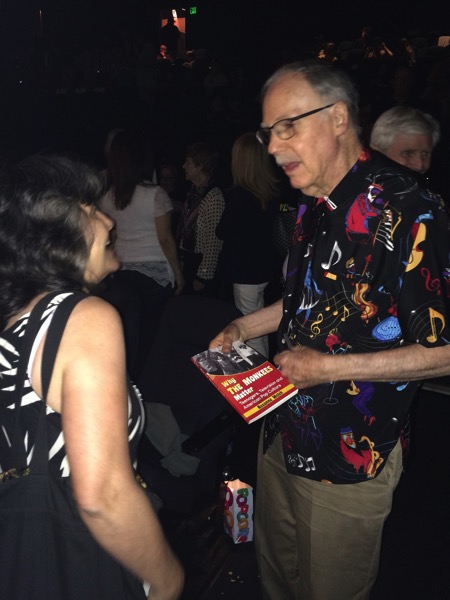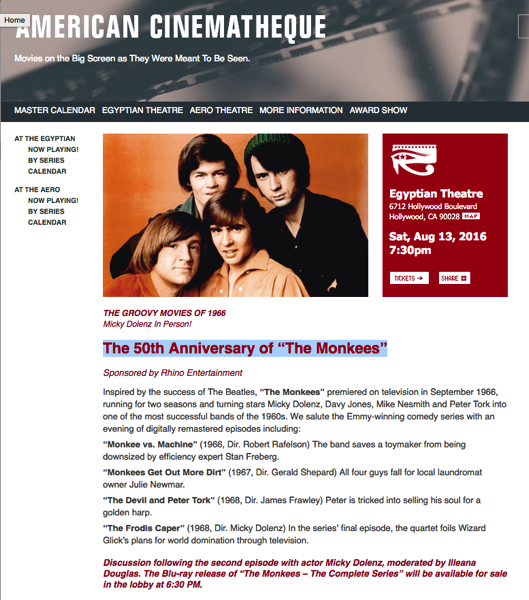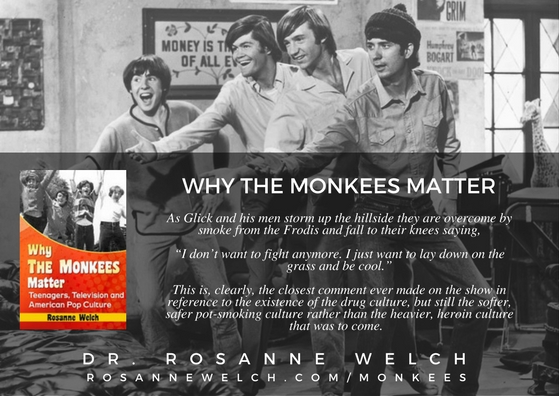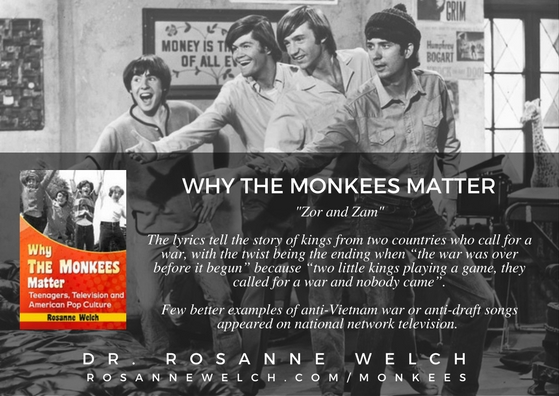Considering the current tour is being mounted by Micky and Peter it’s interesting to watch this 1986 interview the two of them had with Charlie Rose when he was hosting Nightwatch. They attempt to analyze the success of the 20th reunion tour – it’s obvious that even they were still in shock at how much they are loved. Micky continues to credit the quality of the writing – as Charlie Rose says, in the way a television producer would speak.
Rose also asks how it feels ‘at their ages’ (in their mid 40s for gosh sakes) to be on stage in front of so many adoring fans. 🙂
It’s charming to hear them discuss “What happens next?” when no one knew Good Times was in the future. It’s also great to hear an interviewer who actually researched them before forming his questions. When he asks Peter why he quit, Peter admits he was too tied to the idea of an organic rock band – which is very reminiscent of Peter’s recent comments in the “The Monkees: Our Life in 15 Songs” when he said one of the reasons the Good Times album works is that it “also comes down to the ethos that a pop-rock group needs to write all its own material has faded enormously.”
Get “Good Times” directly from Amazon.com
Why The Monkees Matter: Teenagers, Television and American Pop Culture
Previously in Out of Research Vault:
- Comedy Writer Treva Silverman Interview from the Emmy Foundation
- Micky Dolenz on Muppets Tonight
- Pre-Monkees Davy Jones sings “I’m Going to Buy Me A Dog” on Farmer’s Daughter TV Show
- Previously on CBS Sunday Morning: Davy Jones in 1993
- What is it? It’s the Monkeemobile! – August Chronicle, November 7, 2014
- Micky Dolenz & Peter Tork on Nightwatch – 1986
- The Monkees In Melbourne, Australia 1968 [Video]
![From The Research Vault: Micky and Peter on Nightwatch, 1986 [Video]](https://rosannewelch.com/wp-content/uploads/2016/08/micky-peter-nightwatch.png)



![Presenting “Why The Monkees Matter” to Micky Dolenz and Dave Evans, Writer of many Monkees episodes [Photos]](https://rosannewelch.com/wp-content/uploads/2016/08/wmm-dolenz.jpg)


![Women Who Run the Room: A Conversation with Showrunners at the WGAw and co-sponsored by the Stephens MFA in Screenwriting Program [Photo]](https://rosannewelch.com/wp-content/uploads/2016/08/women-room-ig.jpg)

![1960’s TV Censorship and The Monkees with Dr. Rosanne Welch [Video] (21:34)](https://rosannewelch.com/wp-content/uploads/2016/08/monkees-censorship-2016.jpeg)
